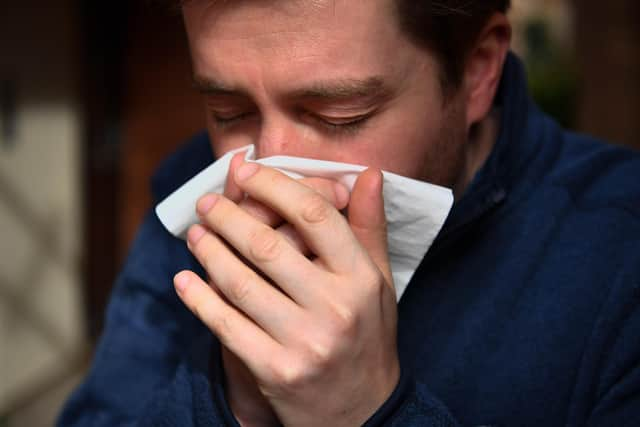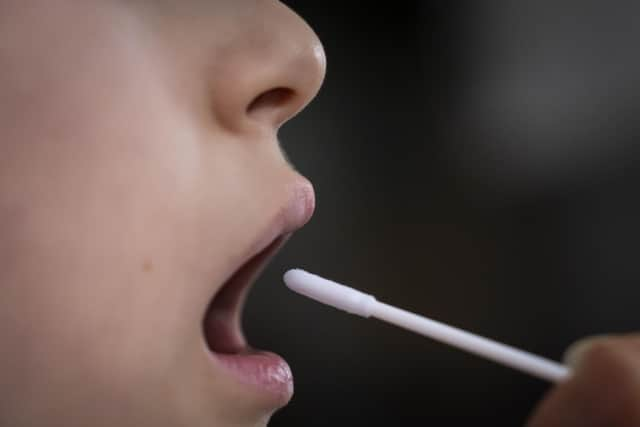What is Freshers’ Flu? Symptoms, signs, causes, cures and how long does it take to recover from university bug
and live on Freeview channel 276
The dreaded freshers’ flu goes hand in hand with Freshers’ Week, which sees new students party it up and get into the swing of university life.
However, all that fun comes with a price and for many that means catching freshers’ flu.
Advertisement
Hide AdAdvertisement
Hide AdHere’s everything you need to know about what it is and how long it can take you to recover.


What is Freshers’ flu?
Freshers’ flu is a cold or flu that many students will experience during their first few weeks of university.
With so many people from different towns, cities and countries gathering in one place, it means that germs can easily spread.
Each region will bring its own variation of the cold or flu, that not all students will have been able to build a resistance against.
Advertisement
Hide AdAdvertisement
Hide AdWith all of these different flu strains floating around means that the chance of catching one of them is high.
Also, many students will spend the first few weeks of term partying, drinking, staying out late and not getting enough sleep.
All of these things combined creates the perfect storm for getting sick.
What are the symptoms of freshers’ flu?
Freshers’ flu has the same symptoms as you would experience with a normal cold or flu.
Symptoms for freshers’ flu can include:
- A sore throat
- Blocked or a runny nose
- Headaches
- Muscles aches
- Coughs
- Sneezing
- Reduced or gone taste or smell
- High temperature/fever
- Tiredness
- Loss of appetite
- Nausea
- Diarrhoea
- Dry, chesty cough


How can you treat freshers’ flu?
Advertisement
Hide AdAdvertisement
Hide AdAs freshers’ flu is similar to the common cold it can easily be managed by allowing yourself time to rest and using over the counter cold and flu medicine.
Here are a few ways you can ease your symptoms:
- Hydrate with plenty of water
- Ensure you get enough bed rest
- Drink hot drinks to soothe your throat and eat hearty soups to help you get the nutrients you need
- Take cold or flu medicine when required
How long does it last?
Freshers’ flu can last anywhere between three to four days to up to a week.
Factors can depend on how well you are looking after yourself and if you are allowing yourself time to rest.
If you have an underlying health condition this can also make recovery slower.
How can you prevent catching Freshers’ flu?
Advertisement
Hide AdAdvertisement
Hide AdFreshers’ flu is something that many students will catch during the first few weeks of term.
However, there are a few ways you can protect yourself from catching it.
Many of these ways are similar to how we protect ourselves from Covid - using hand sanitiser, wearing a mask, washing your hands regularly.
Other ways could include avoiding partying every night and allowing yourself time to rest, ensuring you get adequate sleep and eating a varied diet.


Could it be Covid?
Advertisement
Hide AdAdvertisement
Hide AdThere is always a chance that your freshers’ flu could actually be Covid-19.
If you develop any flu-like symptoms it’s best to take a lateral flow test just to be safe.
Symptoms of Covid-19 can include:
- High temperature or chills
- New, continuous cough
- Loss or change to your sense of smell or taste
- Shortness of breath
- Feeling tired or exhausted
- Aching body
- Headache
- Sore throat
- Blocked or runny nose
- Loss of appetite
- Diarrhoea
- Feeling sick or being sick
You can find out more about Covid-19 on the NHS website.
Comment Guidelines
National World encourages reader discussion on our stories. User feedback, insights and back-and-forth exchanges add a rich layer of context to reporting. Please review our Community Guidelines before commenting.
